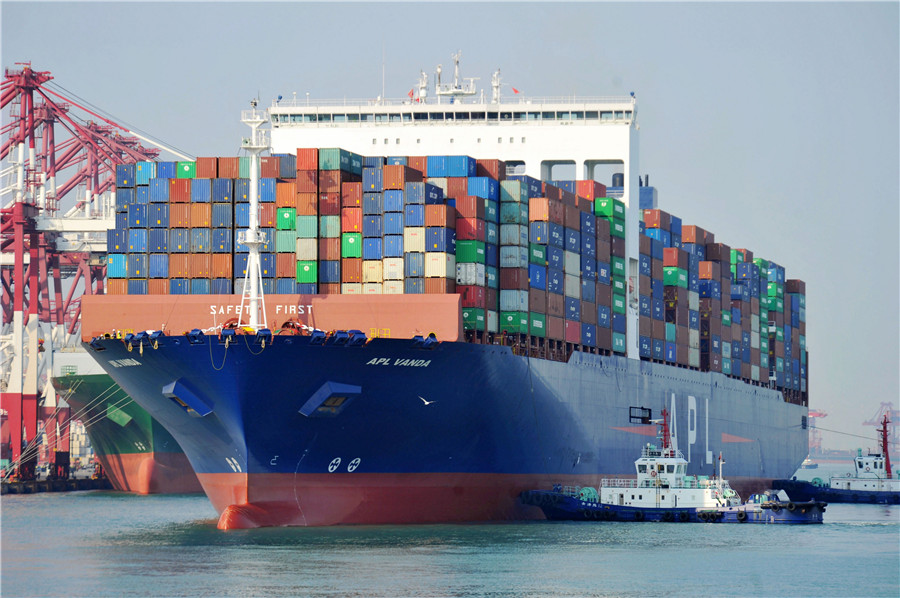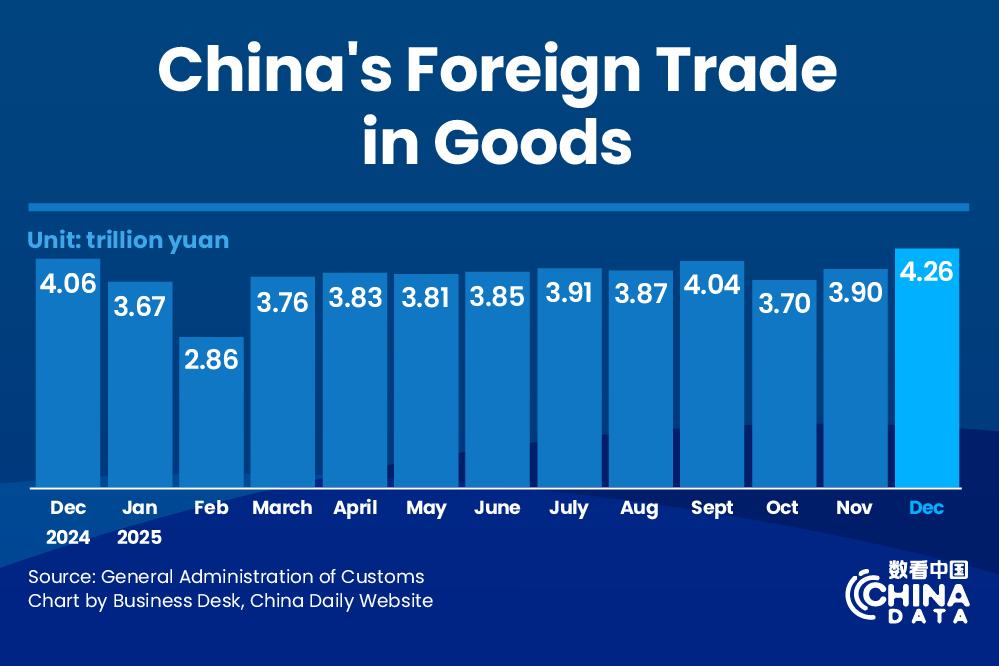Middle East investors drawn toward China for sustainable diversification


Middle East investors looking to gain more exposure in China are increasingly attracted to the nation's robust business environment and technological advancements, as the Gulf countries place greater emphasis on the urgent need to diversify their economies sustainably, experts said.
They expressed their views in response to a recent study titled "China Position 2021: Sustaining institutional interest" by Economist Impact, sponsored by investment management firm Invesco. The report found that 44 percent of Middle East investors said their China exposure had increased over the past 12 months.
Despite the challenges brought by the pandemic, at least 77 percent revealed plans to further increase exposure in the next 12 months, while 74 percent expect better economic conditions in China compared to the rest of the world over the same period. The study took place between June and July, compiling responses from senior investment professionals.
Furkan Halit Yolcu, a research assistant at Sakarya University Middle East Institute in Turkey, made note of China being "an active investor with less demands in terms of dependency".
The West, he said, requires a certain level of alignment "if it is going to invest in your country", adding that Chinese investments come with "less political luggage".
"Middle Eastern nations are becoming more and more aware that the financial ease they have had over the last 40 years is losing its leverage," Yolcu said.
"The region has to discover new ways of growth and provide sustainable solutions to avoid succumbing to financial instability and lack of decentralization."
Patrick Cooke, managing editor for Middle East and Asia at research and advisory company Oxford Business Group, said Middle East investment in China and elsewhere in emerging Asia is a growing trend, accompanied by rising trade volumes between the two regions.
He said the investments are being driven by the need for Middle Eastern economies to diversify, and is led, in part, by the large sovereign wealth fund of the Gulf Cooperation Council countries seeking long-term returns beyond their home markets.
"At the same time, China has been channelling large amounts of investment into strategic projects in GCC countries. This is occurring not just in hard infrastructure but in areas such as ICT (Information and Communications Technology), healthcare and green tech, as Gulf countries seek Asian expertise to accelerate the digital transformation process," Cooke said.
The GCC is a political and economic bloc comprising Bahrain, Saudi Arabia, Oman, Qatar, Kuwait and the United Arab Emirates.
In terms of infrastructure, China has signed documents with 19 countries in the Middle East for cooperation under the Belt and Road Initiative. Its main imports from the region are energy resources, most of which come from Saudi Arabia, Oman, Kuwait and the UAE.
Farhan Mujahid Chak, an associate professor of political science in Gulf Studies at Qatar University, said the BRI is a "brilliant initiative that is a win-win for China and participating developing economies" who lack the requisite capital or foreign direct investment.
"(With) the emphasis on infrastructure development, transformational economic paradigms, and led with a visionary south-south cooperation guiding its pathway, the BRI has led to both applause and condemnation," noted Chak.
The condemnation, he said, is arising largely from the global economic dynamic shifting away from Europe and North America.
"Much of the criticism of China – when citing its lack of human rights, transparency, democracy, etc is hypocritical moral posturing," said Chak.
"Moreover, 'Western' policies in the Middle East contribute to security policies that heighten insecurity."
OBG's Cooke said that with BRI projects expected to boost interregional connectivity in the years to come, Gulf investors may also be looking to gain a foothold in China with the expectation that infrastructure links will precipitate even closer economic ties.
The pronounced optimism among the Middle Eastern countries appears to have gone beyond the business communities in the region.
For example, during his meet with Shanghai's Vice-Mayor Zong Ming in September, Mishal Al-Shamali – consul general of Kuwait in Shanghai – noted the serious need to begin implementing agreements concluded between Kuwait and China, by setting a systematic institutional framework for both countries to develop and strengthen bilateral ties.
In June, during a meeting with Chinese embassy officials in Jordan, representatives of the Amman Chamber of Commerce called for an increase in Chinese investment. The chamber stressed the need to boost Jordan's exports to China while its representatives said they are also keen to carry out trade missions once virus restrictions are eased.
Relations between China and GCC had earlier reached a milestone when two-way trade between the two sides hit $160 billion in 2020, making China the largest trading partner for the bloc and its biggest export market for petrochemicals.
"The history of the Middle East hints at the reservations of the political leaders in trying to balance the superpowers of the international system. The increased enthusiasm towards the Chinese exposure is actually stemmed in this pattern," said Sakarya University's Yolcu.
Middle Eastern leaders value stability the most over other "components of political success", according to the researcher. As such, they do not want to be fully dependent on a single source of political and financial stability. China, in this regard, "comes forward in this endeavour to amplify the sources of legitimization, stability, and investment".
Cooke said that although oil continues to underpin trade between the Gulf and Asia, the commercial relationship has evolved over the past decade into one that spans multiple sectors and reflects the broader strategic interest of all parties.
According to the Invesco study, the region's top investment themes are technology innovation at 58 percent followed by financial services at 38 percent, renewable energy at 36 percent and healthcare at 34 percent.
Investment opportunities in the region span artificial intelligence or related digital automation at 41 percent, online services for businesses or consumers at 38 percent and electric or new energy vehicles at 35 percent, as well as 5G opportunities.
Researcher Yolcu said one of the biggest shortcomings in Middle Eastern economies is "the lack of technological know-how" and noted that countries such as Saudi Arabia, Qatar and the UAE have been attempting to "mitigate this problem". He added that the countries' "tendency to invite investments in this sector is the only rational choice for them".




































